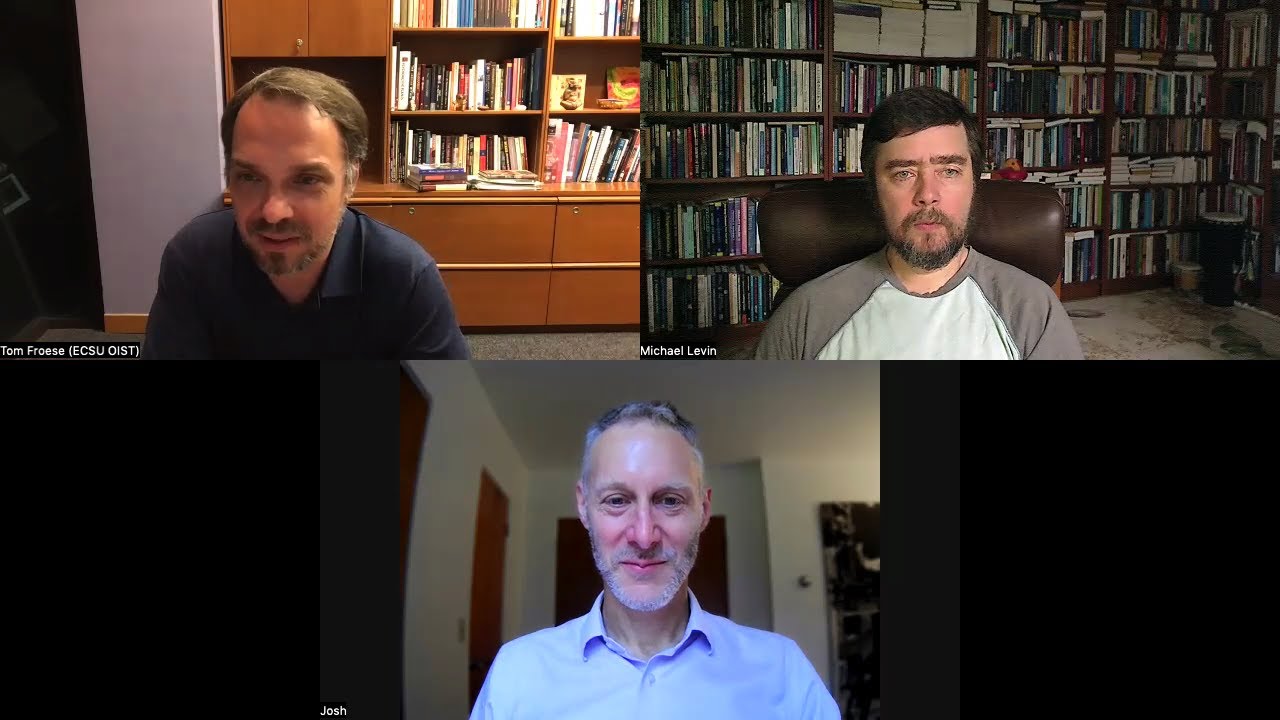In this insightful discussion, Josh Bongard, Tom Froese, and Mike Levin explore the concepts of Irruption Theory, Polycomputing, and the broader implications of these ideas on our understanding of minds and biological systems. The conversation centers around the idea that computation and observation in biological systems are far more complex and intertwined than traditionally thought.
Key Takeaways:
- Polycomputing: This concept, introduced by Josh Bongard, revolves around the idea that a single physical system can perform multiple computations simultaneously, depending on how it is observed. This leads to the notion that observers play a critical role in determining what a system is computing, and that different observers can extract different computations from the same system.
- Observer Primacy: Mike Levin expands on the idea of Polycomputing by emphasizing the importance of the observer. He argues that what something “really” is, can be observer-dependent, and this has significant implications for biology. For example, within a biological system, different subsystems might be observing and computing different things, leading to a more nuanced understanding of what it means to be alive.
- Philosophical Implications: Tom Froese raises concerns about leaning too heavily on a constructivist view, where all the work is done by the observer, potentially neglecting the material reality of the system itself. The discussion touches on the balance between recognizing the observer’s role and acknowledging the intrinsic properties of the system being observed.
- Efficacy and Noise: The conversation delves into the concept of “noise” in systems, often seen as an inconvenience in traditional science. However, the speakers argue that this noise may represent unobservable but efficacious processes that are crucial for understanding complex biological systems. The idea is that what appears as noise might actually be where the most interesting and significant computational processes are occurring.
- Applications in AI and Biology: The discussion also touches on the potential for AI to help us better understand these complex systems. AI, with its different cognitive biases, could uncover patterns and computations that human observers might miss. This has implications for everything from understanding cellular processes to improving AI systems themselves.
Conclusion:
This conversation highlights a paradigm shift in how we think about computation, observation, and life itself. By embracing the complexity and recognizing the critical role of the observer, researchers can unlock new insights into the workings of both biological and artificial systems. The idea that life and computation are deeply intertwined, with multiple layers of observation and interpretation, opens up exciting possibilities for future research and technological advancements.








